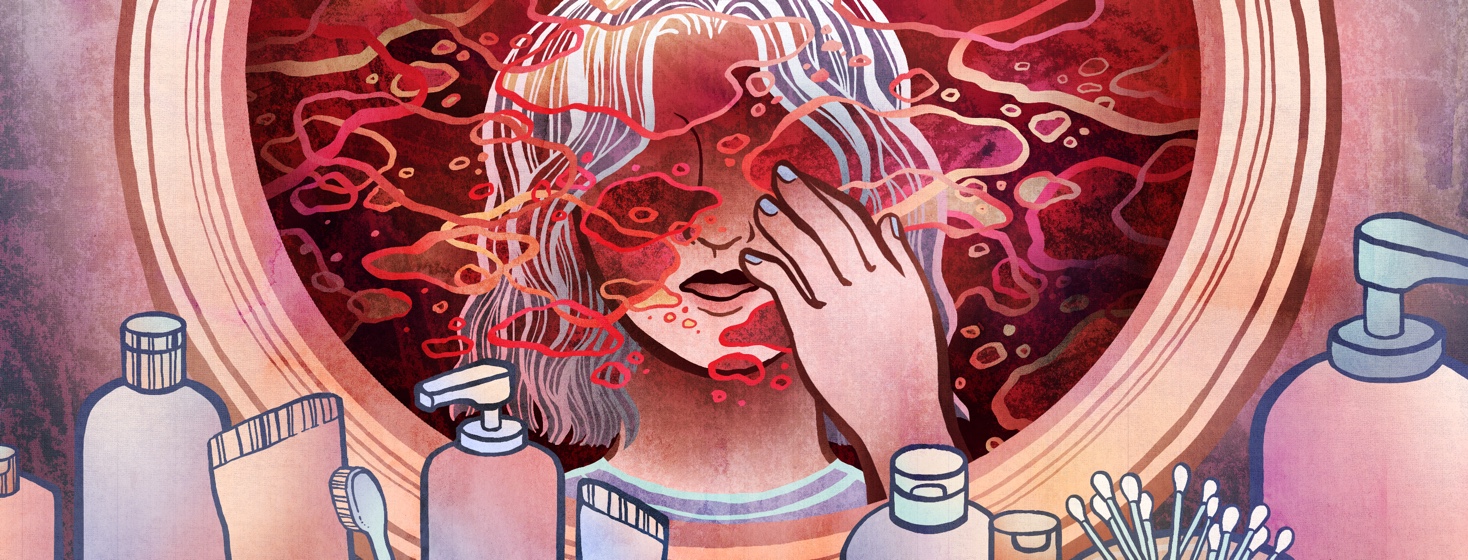Efudex Redness: Is It Permanent?
Skin cancer is a strange and winding road. Your dermatologist may find a suspicious spot you thought was just dry skin. She begins a discussion with you and mentions a cream called Efudex - a strange word in and of itself. You find yourself using the cream, a topical chemotherapy, to treat spots on your skin you didn’t know you had. Over the course of a few weeks, you watch your skin turn red, become angry, and dark spots rise to the surface and form scabs. When it’s over, you have more questions.
Will the Efudex redness ever go away?
As a frequent Efudex user, I often see new users in support groups ask about the lingering redness following the treatment phase. It feels like your skin will never return to normal. Many users become anxious about the level of redness and the fact that it doesn’t seem to fade once the cream is no longer being applied. Furthermore, users want reassurance about resuming normal day-to-day work and school schedules and how the redness will impact their everyday lives.
It's a personal timeline
Since I began using Efudex in 2014, I have noticed that the cream affects users in different ways. Some of us notice irritation and slight redness with the first application while others may not see any visible signs of redness for over a week into treatment. One thing all users seem to have in common is the fact their skin reddens, itches and burns, and can become inflamed as treatment progresses. Once the cream is no longer being regularly applied, the skin begins to tighten as it expects the cream to soften it daily. When this doesn’t happen, users across the board fear their skin will maintain this redness and inflammation.
Getting to the light at the end of the tunnel
Generally speaking, we all reach our peak at different rates. Somewhere in the most commonly prescribed 2-4 week treatment period, the skin seeps and might begin to bleed in small areas. This is known as the erosion phase and signals the end of the treatment. Redness and irritation ramp up for several days (3-5 days for me), but it does, indeed, begin to fade. In fact, once you are able to gently remove the loose dead skin in the shower, you will notice the redness beginning to slowly dissipate.
What about the lingering Efudex redness?
The first year I used Efudex, I treated my chest. I was amazed at how red my skin was during treatment and became increasingly concerned about lingering effects. As the days following treatment passed, I noticed a considerable reduction in redness with each passing day. It was still obvious where I had applied the cream as there was a marked difference in the treated area compared with the pale skin around it. Each morning, however, I noted the area was lighter, and there was less contrast between it and the rest of my chest.
What causes Efudex redness flare-ups?
It takes some time to heal, and it’s worth noting that heat may cause the treated area to flare up on occasion for several months following treatment. Many times, I have noticed redness in the treated area if I get hot or have a sinus cocktail shot. Oral steroids also cause the redness to flare up temporarily for me months after I have stopped treatment.
The redness does go away
The good news is that the redness does, indeed, disappear with time. Resuming your work or school schedule does not have to be put on hold. For me, the relief of having treatment behind me far outweighs any worry I might have over lingering redness. I know it feels like there is no end in sight and the road is weary, but that bit of red skin that wants to stick around is a gradually fading reminder of your strength and determination. Wear it like a badge of honor.

Join the conversation